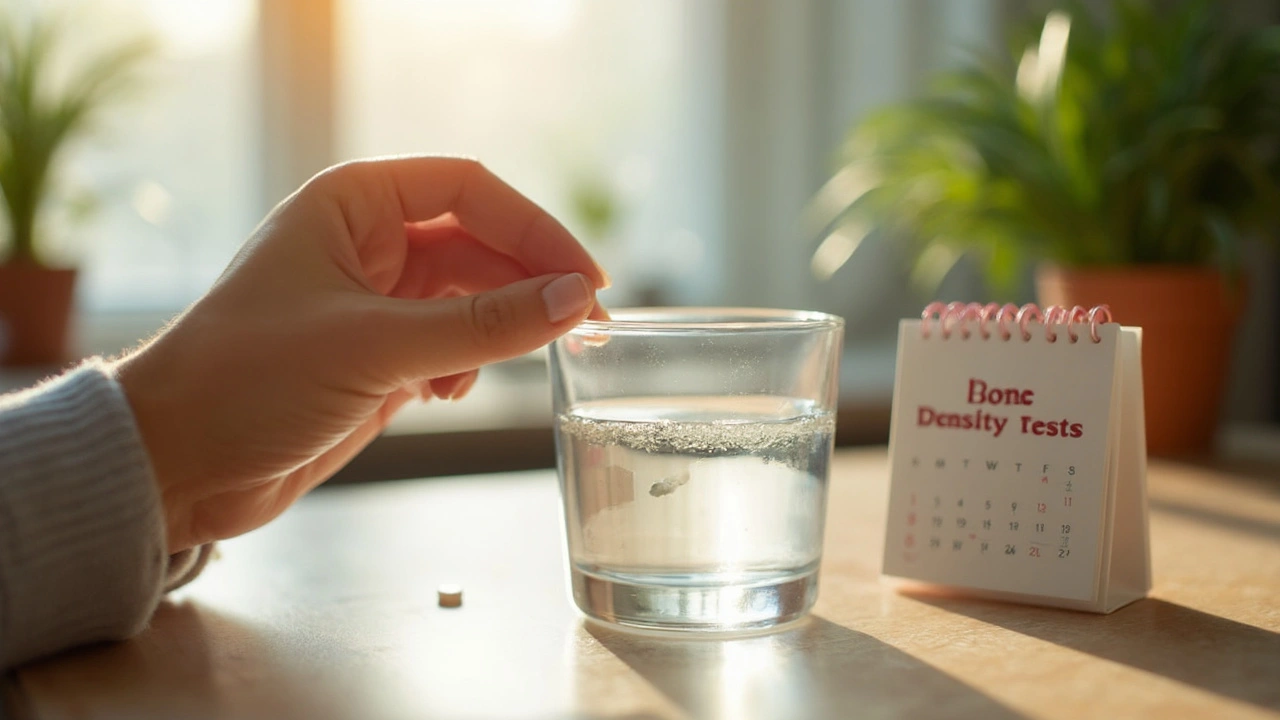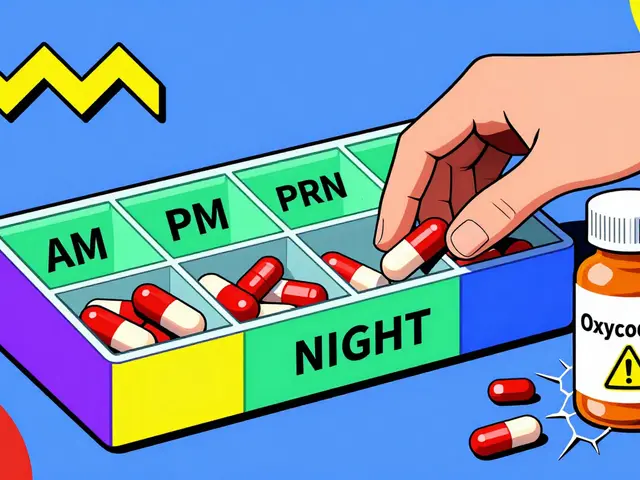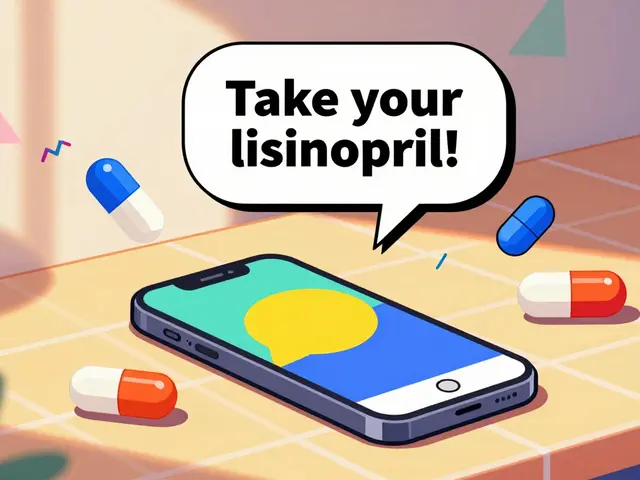You probably know someone who’s been prescribed Fosamax. Maybe you’ve seen the commercials with active seniors hiking, laughing, and living life like osteoporosis never happened. But is that the whole story? Here’s what the ads don’t tell you: taking care of your bones can be trickier than it sounds—especially when you’re facing an osteoporosis diagnosis. Doctors often hand out prescriptions for Fosamax (or the generic, alendronate) almost like candy. But whether you’re juggling pillboxes yourself or watching your parents navigate it, you probably have questions: Does Fosamax really work? Is it safe long-term? What should you watch out for? A lot of people skip these conversations. I won’t.
What Is Fosamax and How Does It Really Work?
When you hear “osteo-what?” at the doctor’s office, chances are, you get a printout with “Fosamax” circled and a vague mention of “building stronger bones.” But here’s what’s actually going on: Fosamax belongs to a family of medications called bisphosphonates. The big idea with these drugs is they help slow down the process where your bone cells get broken down. Each day, your body gets rid of old bone and makes new bone. With osteoporosis—especially if you’re postmenopausal or have been using steroids long-term—the breaking-down process outpaces the building-up. That’s where Fosamax steps in. It basically hangs out in your bone tissue and sends a “slow down!” signal to cells called osteoclasts (they’re the demolition crew). That way, your bone-building team can catch up.
What makes Fosamax stand out? For a lot of patients, it’s the first line of defense because it’s been around for decades (approved by the FDA back in 1995), and there’s a ton of real-world data. Researchers have shown that it can reduce the risk of spine and hip fractures by as much as 50% in people with osteoporosis. That’s not a number to shrug at. If you’ve seen relatives with hunched backs, broken hips, or those mysterious vertebral fractures, you get why these stats matter. But this isn’t a “one size fits all” deal. The success and side effects can vary depending on your age, how much bone loss you’ve had, and even your habits—like whether you smoke, how active you are, and what you eat.
Don’t be surprised if your doctor brings up things like “bone mineral density scans” (DEXA). These tests basically grade your bones before and after treatment to see if the medication’s doing its job. Most people start on a once-a-week oral tablet, but there are daily versions, too. Here’s a weird tip: You’re supposed to take Fosamax with a big glass of water and stay upright for at least 30 minutes—no slouching, eating, or lying down. If you’re someone who hits the snooze button five times, set that alarm and stick to the routine. It might seem picky, but this step helps the medicine absorb and keeps it from irritating your throat. Trust me—no one wants a chemically burned esophagus before breakfast.
Have you heard about bone turnover markers? It sounds like a buzzword, but it’s just a blood or urine test your doctor might use to see how fast your bones are shedding old tissue. If that number drops during treatment, that’s usually a sign Fosamax is doing its thing. Not a guarantee, but helpful info. Now, let’s talk about the elephant in the room: how long should you be on this stuff? Some doctors recommend “drug holidays” after five years because staying on bisphosphonates for too long might bring risks of its own. It’s not a casual thing to pause medication, though, so always check in with your doctor before switching things up.
If you want to maximize your results, you can’t ignore calcium and vitamin D—they’re not just for kids. You’ll need to keep your intake up because Fosamax won’t work well if you’re running low on the basic building blocks your body needs to actually create new bone. Some people like to track their intake using an app or just stack reminders next to their pillbox. Whatever works, just don’t wing it. You’ll also want to keep moving; weight-bearing exercise helps. Think power walking, yoga, or even gardening. If you’re not sure about breaking into a jog, ask your doctor about what’s safe for your joints and back.

Benefits and Drawbacks: The Real Story Behind Side Effects
If you hang out in waiting rooms for long enough, you hear all sorts of stories about medications. Some folks swear Fosamax turned things around—they’re gardening, hiking, and living well. But there are always people who have a rougher time. Here’s the no-spin rundown—so you can watch for the signs and know what’s myth and what’s real.
The most common side effects tend to hit the stomach first: things like heartburn, nausea, bloating, or belly pain. I remember when my wife, Mila, started on a bisphosphonate. She kept getting this weird, achey throat feeling if she didn’t drink enough water or forgot to wait before breakfast. It got sorted out by double-checking the instructions (seriously—don’t skip that “upright for 30 minutes” rule). But if you start having trouble swallowing or get chest pain, don’t just hope it goes away. Your doctor needs to know right away in case you’re dealing with a more serious reaction.
There’s a much less common but much scarier side effect called osteonecrosis of the jaw. Sounds dramatic, right? It’s rare, but if you’ve got dental issues, or if you need major dental work like a tooth pulled, it’s smart to double-check with your dentist and doctor before scheduling anything. Some people get extra dental checks before and during Fosamax. It’s not about scare tactics, just about being careful—especially if you have risk factors like cancer, diabetes, or long-term steroids. Another long-term concern is what’s known as “atypical femur fractures.” Basically, after using bisphosphonates for years and years, in a tiny number of people, a bone in your thigh can crack with minimal trauma. It’s not common (less than one in a thousand), but you’ll want to report any unusual thigh or groin pain.
Then there’s the issue with your kidneys. Fosamax is processed by the kidneys, so if your kidney function is low, that could be a dealbreaker. Doctors usually test kidney function before starting you on this drug and keep an eye on things if you’re on it long-term. If you have trouble with this medication, there are other options—like injections given every few months, nasal sprays, or different pills. You don’t have to tough it out through miserable side effects. Don’t forget about drug interactions, too. Calcium supplements, antacids, and even some other meds can mess with how well *Fosamax* gets absorbed. Try to avoid taking them at the same time as your tablet—space things out by at least half an hour if you can.
If you’re someone who can’t handle a strict pill routine, ask your doctor about alternatives. There are once-a-month pills and even annual IV infusions (think Reclast/zoledronic acid) that may work better for some people. And don’t ignore mental health effects. A big health scare—like breaking a bone out of nowhere—can mess with your confidence. Support groups, online forums, or just swapping notes with friends can help put your worries in perspective. Not every ache is a fracture, and you don’t have to walk this road alone.
Doctors have mixed feelings about how long to keep people on Fosamax. Some newer studies—like one in the New England Journal of Medicine—suggest the biggest benefits are in the first five years of treatment. After that, your doctor might suggest a break or switch to a different medication, especially if your bone scans show improvement. But if you’re still at high risk for fractures, some people stay on for ten years or longer. Always check in about risks versus benefits at every annual checkup.
One thing most people don’t talk about enough: lifestyle changes. It sounds boring until you realize that stacking the deck with better sleep, a little more sunshine, and cutting back on soda can give your bones the edge. Plus, regular falls checkups—especially if your balance isn’t what it once was—can save you from accidents that undo all that hard work. Sometimes, doctors order physical therapy not just for injuries, but as “prehab”—teaching you moves that keep you steadier on your feet. Don’t be shy about asking.

Real-World Tips for Getting the Best Out of Fosamax
If you want to make this medication work for you, little details matter a lot. Here’s what most people wish they’d known in the first weeks (or months) on Fosamax:
- Set your alarm early—take your dose first thing with a big glass of water before eating or drinking anything else.
- Stay upright—no lying back in bed or flopping on the couch. Go for a short walk around the house if you can. If you have trouble with dizziness in the morning, ask your doctor if waiting is okay.
- Mark your calendar—the once-a-week routine is easy to forget. If you mess up and miss a day, skip that week and take your regular dose the next week. Don’t double-dose.
- Keep your calcium and vitamin D levels up. Track your intake or get a blood test now and then to make sure you’re not wasting your effort.
- Watch for warning signs—any new thigh, hip, mouth, or jaw pain needs a call or text to your healthcare team, not a wait-and-see approach.
- Schedule dental visits before you start Fosamax, and tell your dentist you’re taking it—especially if you need work done.
- If you get tummy trouble that won’t quit, see if a different pill formula (like a once-a-month option) is available. No need to suffer in silence.
- Balance training and home safety checks can help prevent falls. Simple changes—like picking up loose rugs, adding night lights, or wearing shoes with grips—keep the drama low. Use a checklist or snap photos on your phone to track changes.
- Ask your pharmacy to put a reminder or color sticker on your pill bottle to keep it top of mind—it sounds silly, but it works.
- Make your food and supplement timing work for you. Different meds can cancel each other out. Give Fosamax its own moment in your morning plan.
People often wonder: "Am I really building bone, or is this just slowing down bone loss?" The real answer is probably both—a little less demolition, a little more construction. It’s not dramatic, but over a few years, even two or three extra millimeters of bone makes a big difference in fracture risk. If you’re tracking bone density, keep a folder of your results and bring them to each appointment—it’s more useful than you’d think. Some clinics now have apps where you can upload scans and get reminders for follow-up DEXAs, lab work, or check-ins.
Try not to compare yourself too closely to others. Your neighbor might be jogging marathons, while you’re working up to walking a block. Both count. Share your story, ask questions, and make adjustments as you go. If you’re nervous about costs, ask about generics (alendronate) or about patient assistance programs. Some plans cover annual IV infusions completely, so don’t rule anything out until you check.
There are a lot of myths floating around about osteoporosis drugs being “unnatural” or “too risky.” The real risk is usually untreated bone loss—because a hip fracture, especially as you age, can be brutal for independence. Yes, medications like *Fosamax* have pros and cons, but if you’re thoughtful with your dosing, nutrition, and checkups, you’re stacking the odds in your favor. Life is already tough enough. Your bones shouldn’t have to be fragile, too. Stay nosy, stay curious, and keep asking your doctors those awkward or “stupid” questions. Trust me, those are usually the most important ones.






Bianca Fernández Rodríguez
May 29, 2025 AT 23:22Honestly, the hype around Fosamax feels more like a marketing gimmick than solid science, and the so‑called 50% fracture reduction is probably overstated in most real‑world settings. The drug’s gastrointestinal irritation alone makes it a nightmare for anyone who isn’t willing to turn breakfast into a ritual of water, standing, and prayer. And let’s not forget the rare but terrifying osteonecrosis of the jaw-yeah, it’s rare, but when it hits, it hits hard. You also have to consider the cumulative bone turnover suppression that can lead to those atypical femur fractures after a few years. In short, the “once‑a‑week pill” might be convenient, but it’s definitely not a free pass to ignore lifestyle changes.
Patrick Culliton
June 10, 2025 AT 05:46What you’re calling “marketing gimmick” is actually backed by decades of randomized trials, and dismissing a 50% risk reduction because of a few side‑effects shows a shallow grasp of risk‑benefit analysis. If you’re terrified of a one‑in‑a‑thousand atypical fracture, you’d be better off ignoring the data that shows a massive drop in hip and spine breaks for the majority.
Andrea Smith
June 21, 2025 AT 12:10Dear fellow readers, I would like to emphasize that, while vigilance regarding side effects is essential, Fosamax remains a cornerstone therapy for osteoporosis when prescribed appropriately. It is crucial to adhere to the administration guidelines to minimize esophageal irritation, and to schedule periodic DEXA scans to monitor therapeutic efficacy. Moreover, integrating adequate calcium and vitamin D intake alongside regular weight‑bearing exercise can synergistically enhance bone density outcomes. In my experience, patients who combine these measures with the medication often report improved confidence in their daily activities.
Gary O'Connor
July 2, 2025 AT 18:34I just take it with a big glass of water and walk around for a bit.
Justin Stanus
July 14, 2025 AT 00:58That ritual may seem simple, but for many it becomes a daily reminder of frailty, turning a harmless tablet into a psychological burden that erodes morale more than the occasional stomach upset ever could.
Claire Mahony
July 25, 2025 AT 07:22While I respect the dedication many patients show in following the regimen, it is worth noting that the literature still raises concerns about long‑term suppression of bone remodeling, especially in individuals with borderline renal function.
Andrea Jacobsen
August 5, 2025 AT 13:46I agree that monitoring kidney health is vital, and pairing the medication with regular blood work can catch issues early, allowing clinicians to adjust dosing or switch therapies before complications arise.
Andrew Irwin
August 16, 2025 AT 20:10From a broader perspective, it’s helpful to view Fosamax as one tool in a toolbox; lifestyle modifications, such as consistent low‑impact exercise and balanced nutrition, often yield comparable benefits without pharmacologic risks.
Jen R
August 28, 2025 AT 02:34Honestly, most of the hype around “miracle pills” like Fosamax is just that-hype. You can get the same bone density improvements by simply walking for thirty minutes a day and making sure you get enough vitamin D. The drug is just a cheap shortcut that pharma loves to push.
Joseph Kloss
September 8, 2025 AT 08:58If we strip away the sensationalism, we encounter a philosophical paradox: the pursuit of skeletal invincibility via synthetic bisphosphonates reflects humanity’s broader desire to dominate nature, yet the very mechanisms that confer strength also sow seeds of future brittleness-an elegant, if unsettling, illustration of the law of unintended consequences.
Anna Cappelletti
September 19, 2025 AT 15:22It’s encouraging to see so many practical tips shared here, and I’d just add that double‑checking the spacing between calcium supplements and the Fosamax tablet can prevent absorption interference-something that often slips past patients during routine counseling.
Dylan Mitchell
September 30, 2025 AT 21:46May I interject? While your advice is well‑intentioned, the phrase “double‑checking the spacing” should be “double‑checking the interval,” as “spacing” implies a physical distance, not a temporal one. Nonetheless, the sentiment is crystal clear, and I applaud the effort to demystify the regimen.
Elle Trent
October 12, 2025 AT 04:10From a pharmacokinetic standpoint, the bioavailability of alendronate is compromised by chelation with divalent cations, necessitating a temporal separation of at least 30 minutes to optimize systemic exposure and mitigate the risk of sub‑therapeutic troughs.
Jessica Gentle
October 23, 2025 AT 10:34When considering how to get the most out of Fosamax, the first step is to verify that the prescription aligns with the patient’s current bone mineral density and overall fracture risk profile, which can be quantified using tools like FRAX. Next, ensure the patient understands the importance of taking the tablet with a full eight‑ounce glass of water on an empty stomach, followed by a minimum of 30 minutes of upright posture to prevent esophageal irritation. It’s also advisable to schedule a baseline DEXA scan prior to initiating therapy, then repeat the scan after 1–2 years to assess treatment efficacy. Calcium intake should be targeted at 1,000–1,200 mg daily, preferably from dietary sources, while vitamin D levels are best maintained between 30–50 ng/mL, often requiring supplementation of 800–1,000 IU per day. Incorporating weight‑bearing exercises, such as brisk walking, light jogging, or resistance training, can synergistically enhance bone formation and improve balance, thereby reducing fall risk. Patients with a history of gastrointestinal disorders should be evaluated for alternative dosing schedules, such as monthly or intravenous bisphosphonates, which may offer better tolerance. Renal function must be assessed before each prescription renewal; an eGFR below 30 mL/min/1.73 m² is generally a contraindication for oral alendronate. Dental health should be optimized before starting therapy, and any invasive procedures should be completed or postponed to avoid osteonecrosis of the jaw. If the patient experiences persistent upper‑esophageal discomfort, a switch to a formulation with a buffered tablet or a lower dose could be considered. For those who have been on Fosamax for more than five years, discuss the possibility of a drug holiday, especially if DEXA results show stable or improved BMD and fracture risk is low. Throughout treatment, maintain open communication with the healthcare team, encouraging patients to report any new thigh or groin pain promptly, as this may herald an atypical femoral fracture. Additionally, advise patients to keep a medication diary or set electronic reminders to avoid missed doses and accidental double‑dosing. Finally, reinforce that medication adherence is just one pillar of osteoporosis management; lifestyle, nutrition, and fall prevention strategies are equally critical to long‑term skeletal health.
Samson Tobias
November 3, 2025 AT 15:58Great summary! I’d add that setting up a simple weekly alarm on the phone can make the “stand upright for 30 minutes” habit feel less like a chore and more like a quick stretch break.
Alan Larkin
November 14, 2025 AT 22:22Just a friendly reminder: consistent adherence to the administration protocol not only maximizes bioavailability but also minimizes adverse events-let’s keep those guidelines front and center! 😊